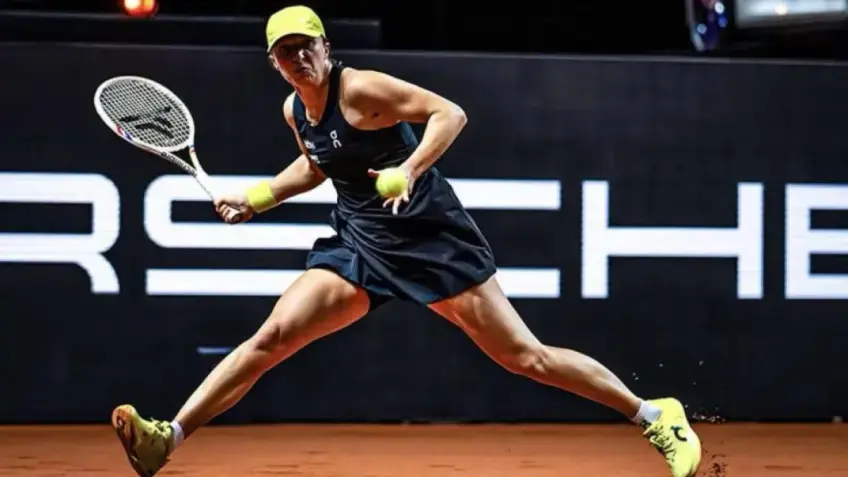
As the clay courts of the Mutua Madrid Open 2025 glistened under the Spanish sun, Iga Swiatek, the world’s second-ranked tennis player, stepped into the spotlight not just as a defending champion but as a voice of candor in the sport’s ongoing battle with anti-doping protocols. The 23-year-old Polish star, fresh off a tumultuous 2024 marked by a doping scandal, shared a raw reflection on the pressures of the anti-doping system, admitting, “It causes a bit of anxiety.” Her words, delivered in a pre-tournament press conference, resonated deeply, shedding light on the mental toll faced by athletes navigating a system designed to ensure fairness but often perceived as unrelenting.
Swiatek’s journey to Madrid was anything but ordinary. Last August, she tested positive for trimetazidine (TMZ), a banned heart medication, during an out-of-competition test at the Cincinnati Open. The International Tennis Integrity Agency (ITIA) determined the violation stemmed from contaminated melatonin, a sleep aid she used to combat jet lag. Accepting a one-month suspension, Swiatek missed three tournaments and forfeited $158,944 in prize money. Reflecting on the ordeal, she said, “I’ve been through the worst, and I was able to come back and sort it out, which makes me feel like nothing can stop me.” Yet, the scars remain, and her comments in Madrid underscored a broader concern among players about the anti-doping system’s rigidity.
The system requires athletes to report their whereabouts for one hour daily, 365 days a year, a rule Swiatek described as particularly taxing. “Every day, while we travel, we have to literally say where we are. If we forget, we might have a ‘not present,’ and with three misses, you get penalized,” she explained. The consequence of three “no-shows” is a potential ban, a looming threat that fuels anxiety. “There’s a lot of pressure with that, and it’s not easy to handle,” Swiatek added, echoing sentiments shared by peers like Ons Jabeur, who confessed to being “traumatized” by early-morning testing knocks, and Andrey Rublev, who has criticized the system’s demands.
Swiatek’s openness comes at a pivotal moment for tennis, still reeling from high-profile doping cases. Jannik Sinner, the men’s world number one, recently accepted a three-month ban after testing positive for clostebol, a case also attributed to contamination. The fallout has sparked debates about fairness and transparency, with players like Aryna Sabalenka admitting to heightened paranoia, saying, “You become too scared of the system.” Swiatek, however, emphasized her trust in the ITIA’s fairness, noting, “I can say from the processes that I went through – and how they treated me from the beginning – that it seemed fair for me.” Her case, resolved without a World Anti-Doping Agency appeal, was deemed “plausible” due to evidence of contamination.
In Madrid, Swiatek faces not only the pressure of defending her title but also the expectations of a fanbase accustomed to her dominance. With 7,383 ranking points, she’s under threat from Jessica Pegula and Coco Gauff, who trail closely. A title defense would make her only the third woman, alongside Serena Williams and Simona Halep, to achieve that feat in Madrid’s history. Yet, she remains grounded, dismissing external pressures: “It’s crazy, but people are not aware when they think about other people that we’re also human.” Her second-round match against Alexandra Eala, who stunned her in Miami, adds intrigue to her campaign.
Swiatek’s resilience shines through as she balances these challenges. “Honestly, after a couple of years, you think about this all the time,” she said of the doping protocols, acknowledging the persistent mental strain. Her ability to return stronger, coupled with her candid advocacy for a less burdensome system, positions her as both a champion and a catalyst for change in tennis’s ongoing anti-doping conversation.
Leave a Reply